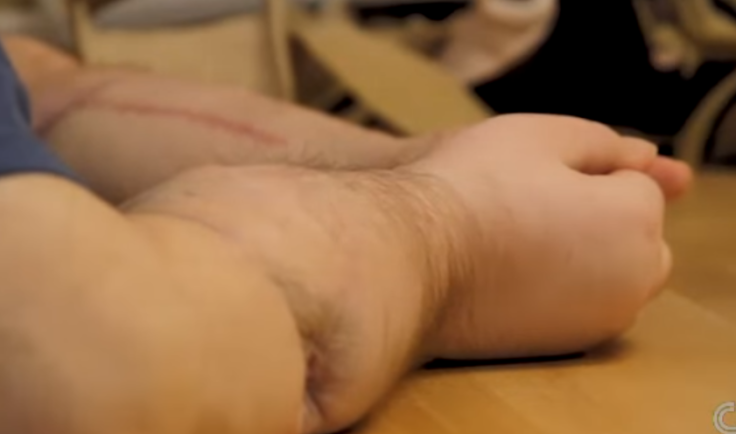Double Hand Transplant Surgery Recipient Speaks Out About His Operation: 'I Can Do Absolutely Nothing'

In 2009, Jeff Kepner became the first person to receive a double hand transplant in the United States. Although the operation stood as a beacon of hope for the future of transplant medicine, seven years later, Kepner explains that his new hands don’t work — at all. In fact, the 64-year old claims to have even less functionality than when he had no hands at all, making him a prisoner in his own home. Kepner is not the first patient to be deeply dissatisfied with his new transplanted body part, and shows us that transplant surgeries have much room for growth.
Although the “first-of-its-kind” procedure went as planned without physical complications, the hands do not function properly. Of the four original patients who were offered the operation, Kepner was the only one unable to regain movement in his new appendages. Removing Kepner’s new hands would not be a simple procedure and his doctors warn that even if they are able to successfully remove the transplants, it may take several more surgeries and physical therapy before Kepner can go back to using prosthetics again.
According to Time, Kepner has become a prisoner in his home. “From day one I have never been able to use my hands,” he told the magazine. “I can do absolutely nothing. I sit in my chair all day and wear my TV out.”
In 1999, Kepner lost both his hands due to sepsis that had started as a strep throat infection. For years, he relied on prosthetics to complete daily tasks such as driving until he was offered the opportunity to take part in a ground-breaking double hand transplant.
It used to be that transplants were reserved for major body parts such as hearts and kidneys. Today, however, doctors are able to conduct this complex surgery for body parts which are not exactly necessary to sustain life — such as the hands, face, and penis. While these operations often make headlines, what the public fails to hear about is the recovery of these patients.
Psychological rejection of new body parts is a common occurrence during these transplant surgeries and Kepner is by far not the first patient to request to have his new appendage removed. For example, in 2001, surgeons amputated the world’s first hand transplant from a 50-year-old New Zealander because he felt “mentally detached” from the “hideous withered” hand, The Guardian reported. Again, in 2006, the man to undergo the first penis transplant in 2006 reportedly requested to have his new penis removed after his wife refused to accept the new organ.
Kepner explained that, as much as he did not like his new hands, he does not want to undergo the surgeries and physical therapy required to remove them just yet. His story emphasizes the fact that all operations, big and small, come with risks.
“That’s the chance you take,” Kepner explained, “and that’s the chance I took.”



























